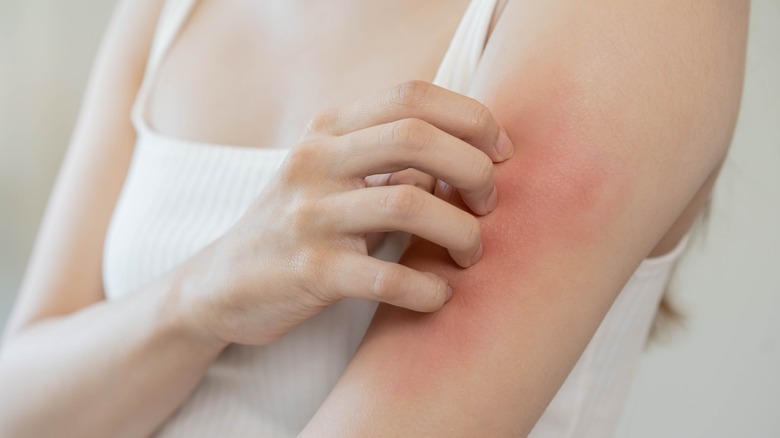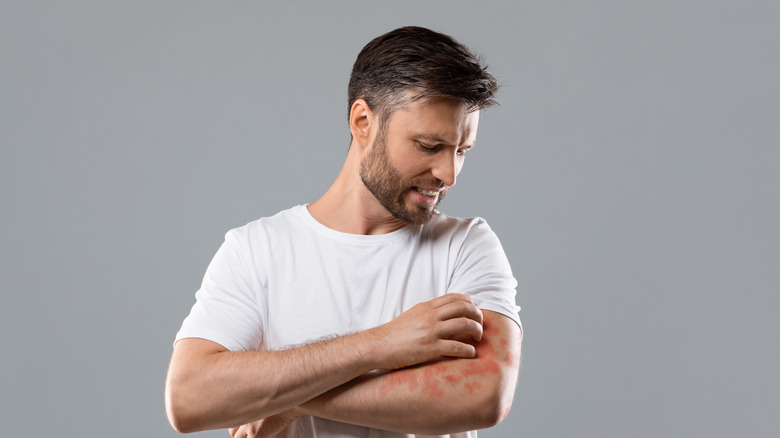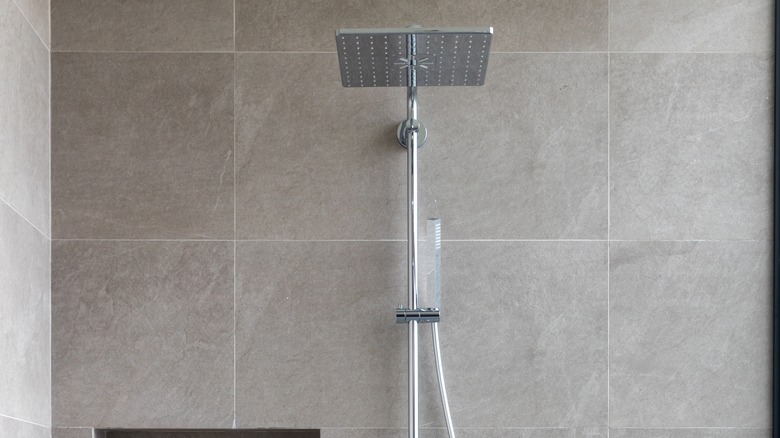Bath Versus Shower: Which Is Better For Your Eczema-Prone Skin?
As the leaves begin to crack and fall, you might notice that your skin also seems a bit drier in the winter months. For most individuals, a daily routine involving some kind of moisturizer is sure to relieve temporary dry skin. However, for individuals with eczema, more than just a standard lotion might be needed to manage the effects of the skin condition.
Eczema, the most common form of atopic dermatitis, is a condition in which the individual experiences dry, itchy, skin that can become inflamed, according to Mayo Clinic. The skin can also be red or blotchy and can even present with crusty or flaky side effects in certain cases. WebMD explains that while eczema is more common in children, 18 million adults also experience symptoms. Typically, symptoms will appear in the individual before five years of age. With proper care, eczema can be managed and flare-ups, or episodes of increased itchiness, can be reduced (via Healthline). Most care management plans focus on ensuring that the skin stays properly clean and moisturized. Knowing the best ways to keep the skin clean and moisturized is key for individuals who are dealing with eczema.
A brief background on eczema
WebMD explains that there is no specific cause for eczema, but there does appear to be a genetic connection. If a member of your family has eczema, it is more likely you will develop eczema symptoms as well. There's also believed to be a connection for kids who have eczema and hay fever, allergies, and asthma. More research is needed before a direct connection can be established.
The National Eczema Association explains that eczema flare-ups are increased by external factors such as wind, low humidity, and harsh soaps. Eczema occurs because the skin struggles to keep in the natural moisture of the skin. Individuals with eczema have an issue with the skin's barrier that prevents irritants from entering and moisture from escaping. This leads to skin that is much drier than individuals without eczema. For those with eczema, ensuring that the skin stays moisturized is key. The National Eczema Association explains that two ways to help with keeping the skin clean and hydrated are to take a bath or shower and immediately follow up with a moisturizer.
Is the bath or the shower better?
But which is better, the shower or the bath? The real concern comes from how long the individual spends bathing, regardless of the method. While it is important to maintain proper hygiene, some practices can actually create further irritation for the skin. For example, using extremely hot water or staying in the shower or bath for too long can lead to additional flare-ups of eczema conditions, according to Healthline.
Though there's not a formal recommendation, showers tend to typically be better for eczema-prone individuals, as they are most often shorter in duration than baths, according to Everyday Health. But the key is to keep the cleaning session to a shorter time frame, regardless of if you choose a bath or shower. The National Eczema Association recommends ensuring that the water is not too hot and that the bathing time does not exceed 10 minutes. In addition, the recommendations include patting the skin rather than rubbing it dry with a towel. They also suggest applying moisturizer within three minutes of exiting the shower or bath to help reduce flare-ups and symptoms of eczema.


